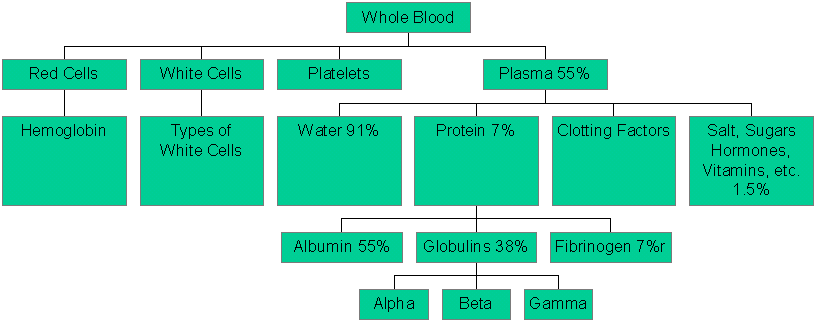












          |
   |
Bloodless care is becoming an increasingly popular choice for those about to undergo surgery. Bloodless care can be provided safely during heart surgery - even with heart transplant surgery. In 1997, there were only about 60 institutions in the United States offering bloodless care. Due to consumer demand, these numbers are changing and more and more hospitals are learning about safer ways to administer bloodless care.
According to Kay Williams, C.R.N.P., Director of the Center for Bloodless Medicine and Surgery at the Pennsylvania Hospital in Philadelphia, bloodless care was started to accommodate the religious beliefs of the Jehovah Witness sect, however, in 1997, over 30% of persons requesting bloodless care at the one Philadelphia hospital were not choosing this option for religious reasons rather to avoid the potential risk of HIV/AIDS, hepatitis and other blood-borne viruses, she said. While improved screening methods have reduced this risk, it is still a concern for many.
Another concern is allergic reaction. Whether you receive your own blood or the blood from another, the risk of allergic reaction is the same. Few people realize this fact. An allergic reaction can occur if a person is sensitive to the preservatives used when storing blood. Allergic reactions are considered serious and they can never be predicted.
Inflammatory response in patients is another concern. According to heart transplant specialist Valluvan Jeevandam, M.D. "... there are numerous inflammatory molecules that are given with the blood...They can create an inflammatory response in patients...this contributes to pulmonary dysfunction and water logging". Inflammatory response can add days to the recovery period after open heart surgery.
Ms. Williams clarifies that non-acceptance of blood products is not a " death wish" by the patient. "Those requesting bloodless care expect that the most advanced care be made available to them. And, the first action by the physician is always to try and stop the bleeding".
Quality alternatives to blood products are divided into four categories:
|

Knowing about bloodless care alternatives will help you to make informed treatment decisions about care and will empower you to discuss care options with your doctor.
Advance Directive for Bloodless Care pdf format
¹Erythropoietin is a synthetic hormone delivered by intramuscular injection to stimulate the production of red blood cells in the bone marrow. This intervention usually requires several days for the red blood cell count to rise and is used in combination with vitamin therapy and iron. Surgery is scheduled accordingly.
Source: Strategies - newsletter from Graduate Hospital Bloodless Care program, Winter 1996 edition. The above information is made available to you so that you may discuss bloodless care options with your physician. For additional information about bloodless care, you may contact the Jehovah’s Witness liaison at your local hospital or you may call the Center for Bloodless Medicine and Surgery at the Pennsylvania Hospital (215)829-6504.
State Report Cards | Questons Before Heart Surgery | Heart Surgery Options | Scarless Heart Surgery | Valve Surgery Options | Bloodless Care: What You Need to Know | Being Informed About Your Medical Care
Disclaimer | Donate Now | Contact Us | Site Map | Store
|
©1999-2000; updates: 2002, 2004, 2005, 2007 Women's Heart Foundation, Inc. All rights reserved. Unauthorized use prohibited. The information contained in this Women's Heart Foundation (WHF) Web site is not a substitute for medical advice or treatment, and WHF recommends consultation with your doctor or health care professional. |